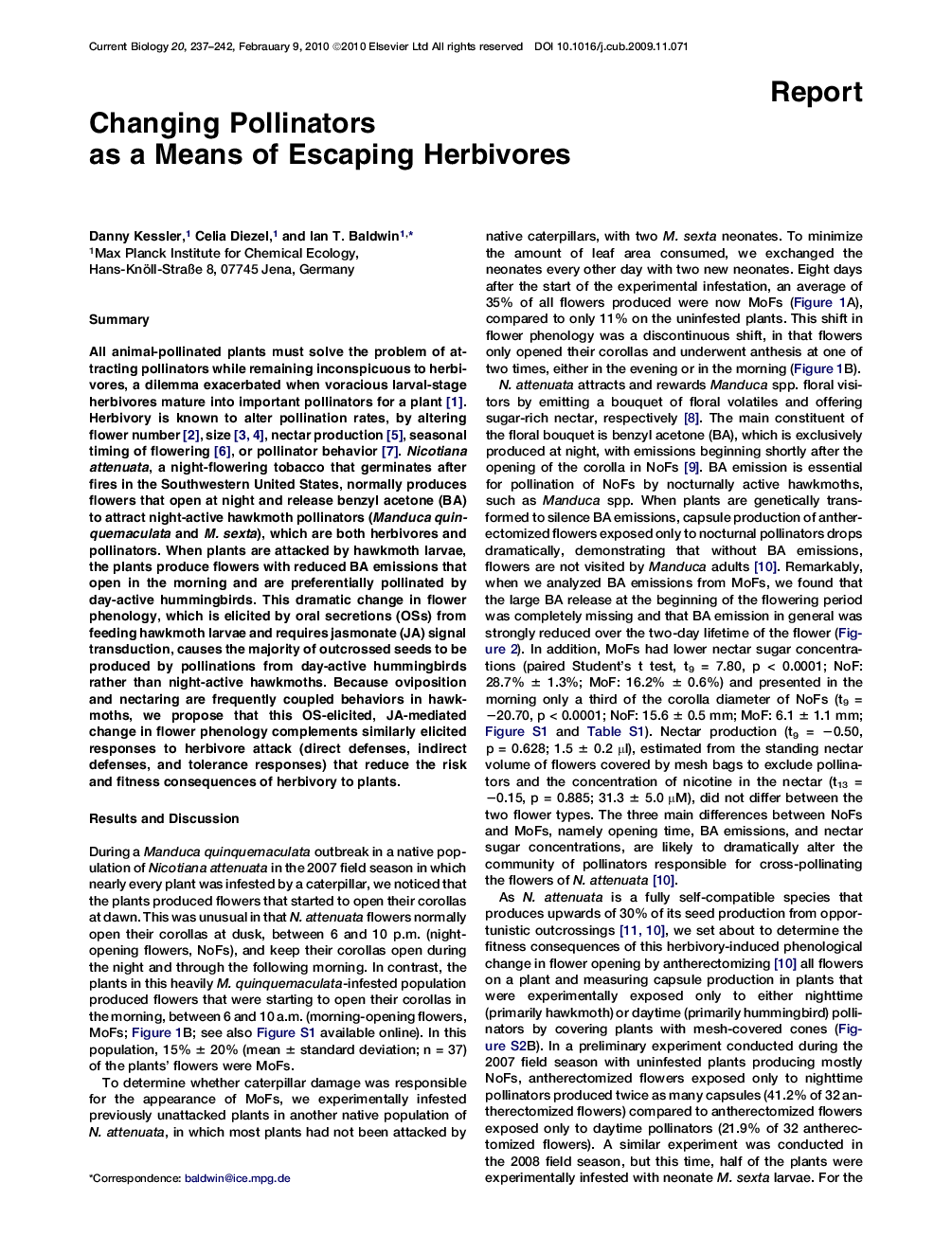| کد مقاله | کد نشریه | سال انتشار | مقاله انگلیسی | نسخه تمام متن |
|---|---|---|---|---|
| 2043916 | 1073382 | 2010 | 6 صفحه PDF | دانلود رایگان |

SummaryAll animal-pollinated plants must solve the problem of attracting pollinators while remaining inconspicuous to herbivores, a dilemma exacerbated when voracious larval-stage herbivores mature into important pollinators for a plant [1]. Herbivory is known to alter pollination rates, by altering flower number [2], size 3 and 4, nectar production [5], seasonal timing of flowering [6], or pollinator behavior [7]. Nicotiana attenuata, a night-flowering tobacco that germinates after fires in the Southwestern United States, normally produces flowers that open at night and release benzyl acetone (BA) to attract night-active hawkmoth pollinators (Manduca quinquemaculata and M. sexta), which are both herbivores and pollinators. When plants are attacked by hawkmoth larvae, the plants produce flowers with reduced BA emissions that open in the morning and are preferentially pollinated by day-active hummingbirds. This dramatic change in flower phenology, which is elicited by oral secretions (OSs) from feeding hawkmoth larvae and requires jasmonate (JA) signal transduction, causes the majority of outcrossed seeds to be produced by pollinations from day-active hummingbirds rather than night-active hawkmoths. Because oviposition and nectaring are frequently coupled behaviors in hawkmoths, we propose that this OS-elicited, JA-mediated change in flower phenology complements similarly elicited responses to herbivore attack (direct defenses, indirect defenses, and tolerance responses) that reduce the risk and fitness consequences of herbivory to plants.
► Night-flowering tobacco produces new morning-opening flowers when attacked by tobacco hornworm larvae
► These morning-opening flowers are invisible to hornworm adults that lay eggs as they pollinate night flowers
► Hummingbirds prefer morning-opening flowers; plants escape herbivores by switching pollinators
► JA signaling mediates the change in flower opening times
Journal: - Volume 20, Issue 3, 9 February 2010, Pages 237–242